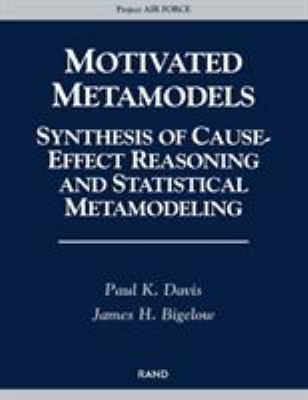
|
Motivated metamodels : synthesis of cause-effect reasoning and statistical metamodeling
Copies
0 Total copies, 0 Copies are in,
0 Copies are out.
Title
Motivated metamodels : synthesis of cause-effect reasoning and statistical metamodeling
Call No
QA76.9.C65
Digital Link
Language
English
Published
Santa Monica, CA : RAND, 2003.
Publication Desc
xix, 65 p. : ill. ;
ISBN
0833033190 (pbk.)
LCCN
2002155700
Dimensions
28 cm.
MLA
APA
Chicago
0
/
0








